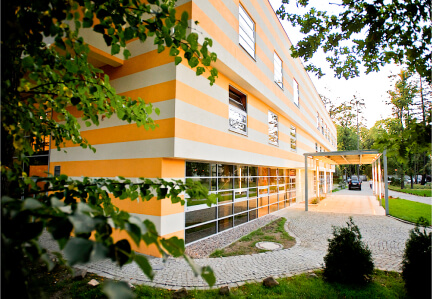We are a group of professionals united by our professional passion. We know that by acting as a team, we provide you with comprehensive care. We have joined our forces to support you on your way to a light life. Baria3 is an initiative that was created with the needs of patients in mind. We combine the work of a surgeon, dietician and psychologist. We cure the soul and body of obesity, individually selecting a treatment programme for our clients. During your consultation with one of our surgeons, you will learn about all the options for bariatric treatment and the type of treatment that will be chosen specifically for you.
Sleeve (cuff) gastrectomy
A radical reduction in the volume of the stomach as well as a reduction in the level of ghrelin (a hunger hormone), are the two main advantages of this method.







